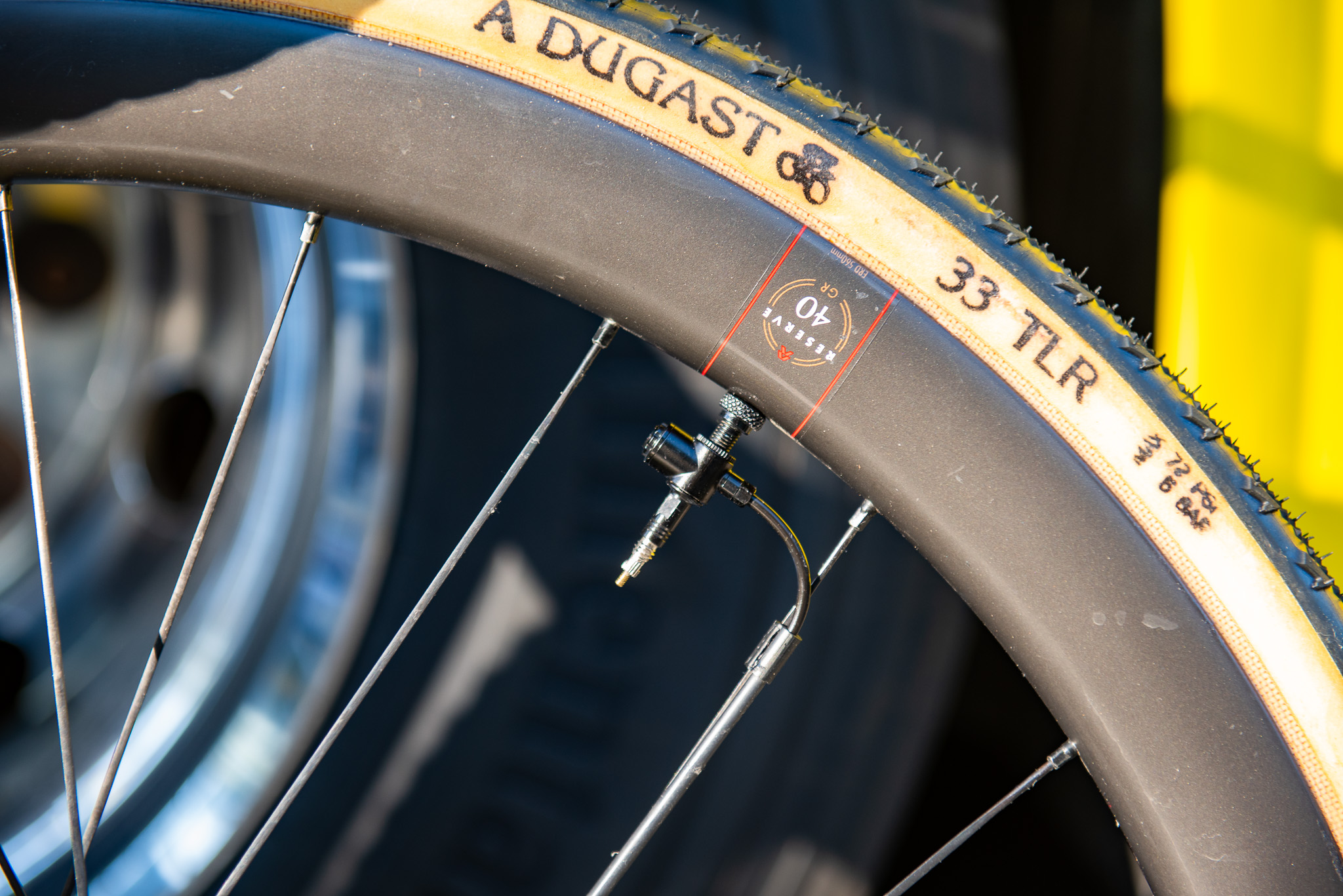
Self-inflating tyre technology had a hiatus from the Paris-Roubaix and Classics peloton during the 2024 season after its initial landmark first use in 2023, however, after the success of Marianne Vos using the technology en route to Gravel World Championships victory, are they set to return next spring?
It's Vos's trade team Visma-Lease a Bike who have been spotted using the Dutch brand Gravaa's KAPS system during a recent training session on the cobbled roads of Flanders, after they first trialled the adjustable tyre pressure system in a race there at Dwars door Vlaanderen in 2023.
The system was approved in April of 2022 by the UCI after Team DSM had also been working on a similar on-the-go tyre pressure management system with the Scope Atmoz.
Key Classics leaders Wout van Aert, Matteo Jorgenson, Dylan van Baarle and Tiesj Benoot, who also used the wheelset at Gravel Worlds, could all be seen on their Cervélo S5 road bikes sporting a larger front hub that houses the technology.
Inside the wheel hubs lies a mini compressor and clutch which can be used to inflate the pressure of the tyre on the fly while on solid terrain, before reducing pressure to accommodate rougher terrain where lower pressure could optimise rolling resistance.
Vos confirmed to Cyclingnews at Gravel Worlds that she had frequently used the system during the race to great effect, "with higher pressure at the finish" where she pipped Lotte Kopecky to victory in a two-up sprint, "but also with lowering the pressure on rougher track" to get away in the lead group.
The Gravaa operating system was housed in the right bar end on Vos's gravel setup for easy access during the race.
While Van Aert was using the Gravaa wheelset made with Visma's wheel sponsor Reserve in training, he was one of the Visma riders who didn't use the adjustable tyre pressure set at Roubaix in 2023. He ultimately finished that race in third after a late puncture saw his great rival Mathieu van der Poel ride solo to the win.
Gravaa's owner, Gertjan van Ginderen, explained at the Gravel World Championships that the system has been developed considerably since its initial release in 2022 and first race uses in 2023.
"So we improved the electronics a lot, I must say," he told Cyclingnews. "So there's a PCB [printed circuit board] inside each hub, and this is very vulnerable for moisture dirt, so we've actually made a change inside the technology to have it completely potted.
"So it's completely potted the electronics in the epoxy. We've changed the antenna, we've changed the disc brakes, including the interface of the disc brakes, also to be compatible with other spoke configurations."
The system uses a kinetic pump, driven by the rotation of the wheel which means it doesn't need to be charged and doesn't use an internal CO2 canister as seen on some of the previously tested self-inflation systems. That means the tyre can be deflated and inflated as a rider requires.
"This basically is a very small compressor clutch mechanism and electronic printed circuit board, and the hubs talk with each other," Van Ginderen explained. "So the front hub is the master, while the rear up is a slave. And to the front up, you can connect either your smartphone or your bicycle computer, as long as it is Bluetooth compatible."
Following the success of Vos in Leuven, could 2025 be the year self-inflating tyres really become the new trend in road racing? Visma's men's team are certainly getting used to the system early in case they do opt for their leaders to use it come The Tour of Flanders and Paris-Roubaix in April.
With the updates and upgrades to the technical system and Gravaa's broader business development, Visma running this system in the cobbled races would run true with Van Ginderen's confident that the technology would become more of a mainstay in the Dutch team's equipment setup at the Classics.







